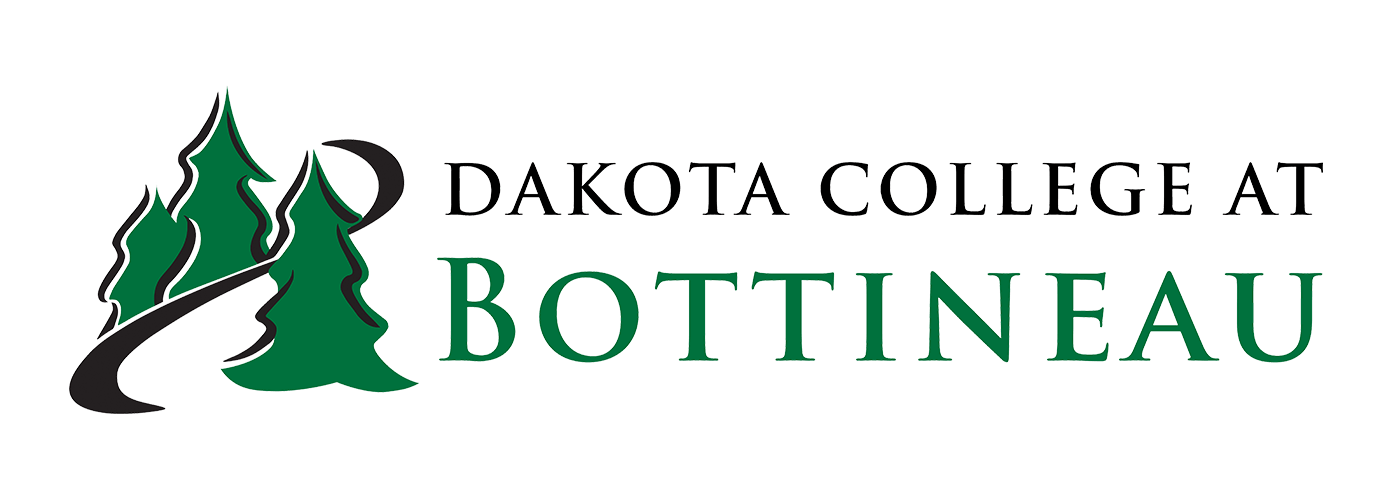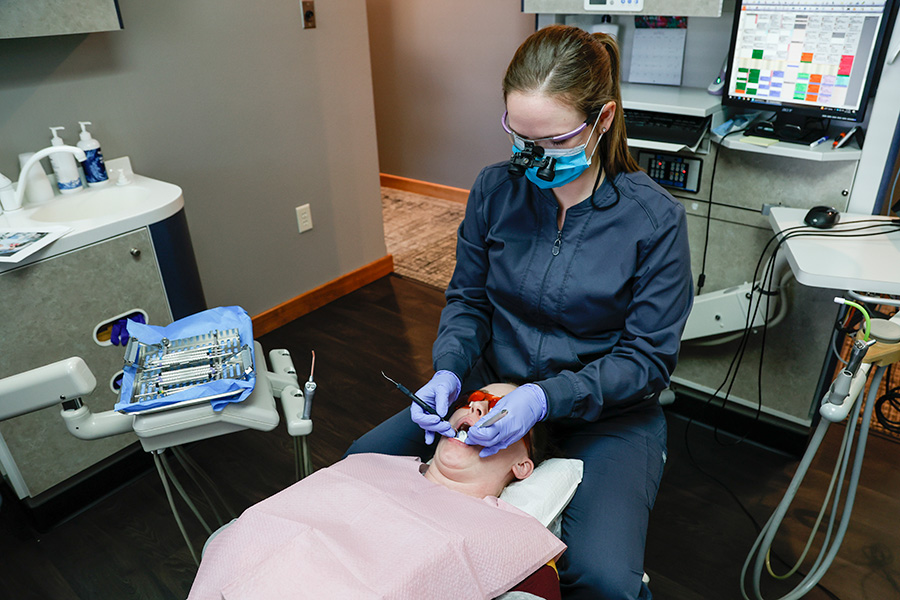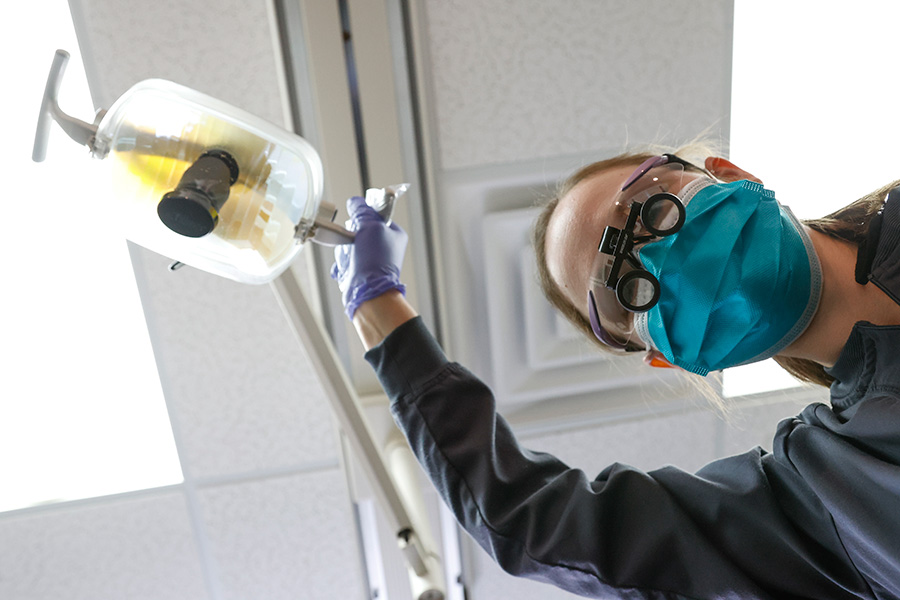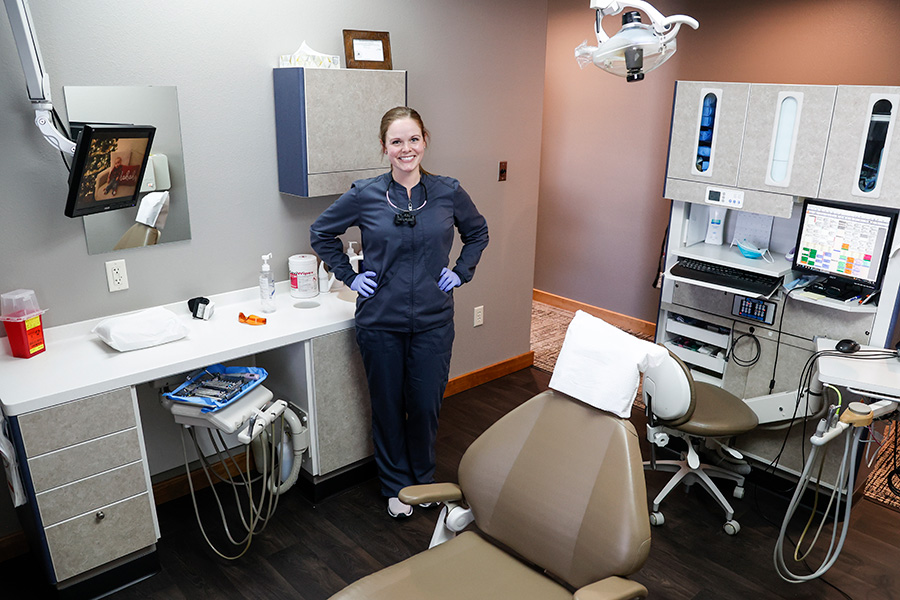| Bottineau | Minot | Valley City | Online |
|---|---|---|---|
|
|
✓ |
|
|
✓ A check mark denotes that a majority of the classes are available at that campus location or online. If you have any questions please contact the advisor listed below on this page.
The Dental Hygiene program is opening Fall of 2025
Mission
The Dakota College Dental Hygiene program is committed to promoting the educational and professional advancement of dental hygienist with the most recent advances in technology, materials, techniques and equipment through vital courses and professional activities. The graduate will be well-prepared to enhance the delivery of quality dental health care to our diverse community.
The Dental Hygiene program prepares students to become licensed oral health care professionals who provide preventative oral health care by assessing patient risk for oral diseases and providing appropriate patient-centered education and treatment. The dental hygienist works independently, under the supervision of a dentist and is an essential member of the dental team. Besides providing clinical dental hygiene services, a dental hygienist may choose from several career paths, such as corporate, public health, researcher, educator, administrator or entrepreneur.
Why study dental hygiene?
Dental Hygiene is a specialized field requiring knowledge, critical thinking, and competent clinical skills to provide comprehensive patient-centered dental hygiene care. Dental hygienists in a clinical role assess, diagnose, plan, implement, evaluate, and document treatment for prevention, intervention, and control of oral diseases, while practicing in collaboration with other health professionals. The field is above average in industry growth, and the specialized skills give students varied employment options.
Focused courses for your degree
The dental hygiene program requires 35 credits of pre-requisite courses. These courses must be completed before applying and being accepted into the dental hygiene program. The dental hygiene program includes 64 credits and will take two academic years, plus one summer session, to complete. The program includes lectures, supervised labs, and clinics. Students will also participate in service-learning opportunities. Graduates will earn an Associate of Applied Science (AAS) degree in Dental Hygiene.
Accreditation Status
The Dental Hygiene program is seeking initial accreditation by the Commission on Dental Accreditation (CODA). The Commission is a specialized accrediting body recognized by the United States Department of Education. The Commission on Dental Accreditation can be contacted at (312) 440-4653 or 211 East Chicago Avenue, Chicago, IL 60611. The Commission’s web address is https://www.ada.org/en/coda.
Student Requirements
Health Data
Students will not be allowed to participate in labs or clinics unless all requirements have been met. Expenses for immunizations, CPR certification and criminal background studies are the student’s responsibility.
Required Immunizations/Verification
Documentation will be due by July 15 (*unless specified).
- Documentation of two Measles, Mumps, Rubella vaccination or Rubella positive titer.
- Documentation of three Hepatitis B immunizations, positive titer, or a waiver.
- Documentation of two Varicella (Chicken Pox) vaccinations or proof of a positive titer.
- Documentation of Tdap (Tetanus, Diphtheria & Pertussis) vaccination within the last ten years.
- Documentation of a negative two-step TB Skin Test (Mantoux), or QuantiFERON Gold blood test or Tspot. If positive, a copy of the lab report or a clear chest x-ray completed within the last year is required. This requirement will be a yearly renewal.
- Documentation of a flu shot administered during the current flu season. *This requirement will not be due until October 1 to ensure administration of current vaccination and will be a yearly renewal.
- Covid-19 Vaccination could be required, depending on requirements of individual clinical sites.
Basic Life Support CPR Required
Students must have proof of Healthcare Provider American Red Cross or American Heart Association Basic Life Support CPR prior to starting the dental assisting program. Certification must include a hands-on, in-person testing component. Proof must be provided during the first week of classes in the fall semester. Students are responsible for the cost.
Students must maintain continuous CPR certification throughout the program.
Criminal Background Study
Students will be required to pass a state and national criminal background study prior to final acceptance into the dental assisting or hygiene program. The cost of these studies will be the students responsibility.
Bloodborne Pathogens Statement
Due to the nature of the dental assisting and hygiene professions, students will be participating in a learning environment that has the potential of exposure to blood borne pathogens. Students accepted into the program are provided with written policies and instruction on infection control protocol to reduce the risk of disease transmission. The programs comply with all institutional, local, state, and federal policies. Policies and procedures on the dental assisting/dental hygiene program's infection control protocol are available to applicants upon request.
Credential
Dental hygienists must complete an accredited educational program to qualify for licensure in a particular state or region. Dental hygienists are licensed with the credential of Registered Dental Hygienist (RDH) or Licensed Dental Hygienist (LDH) following completion of an academic program that includes didactic and clinical requirements. Following graduation and licensure requirements of the North Dakota State Board of Dentistry, the dental hygienist will use the credential Registered Dental Hygienist (RDH).
The Commission on Dental Accreditation (CODA) serves the public and profession by developing and implementing accreditation standards that promote and monitor dental education programs’ continuous quality and improvement. Dakota College is seeking initial accreditation by CODA.
Laptop Computer
Dental program students must have a laptop computer. The cost will be in addition to the cost of tuition, fees, and books. The computer must be a Windows-based system. Dakota College students have access to Office 365 in the student portal. The recommended computer specifications can be found here: /student-life/computer-services
Employment Statistics
| Employment Statistics | |
|---|---|
| Bureau of Labor Statistics Occupational Employment and Wage Statistics for Dental Assistants | |
| Annual Mean Wage May 2022 Hourly |
$81,400 $39.14 |
| Job Outlook, 2022 - 2032 | Growing at 7% (faster than average growth rate for all occupations) |
|
Resource: Bureau of Labor Statistics, U.S. Department of Labor, Occupational Outlook Handbook, Dental Hygienists,
|
|
For more information regarding employment statistics, career salary information and estimated job growth, follow the resource links below:
ND Career Builders
ND Career Builders
The ND Career Builders program provides matching funds to help North Dakota businesses recruit employees and keep talent in North Dakota. We are seeking businesses to participate and invest in this unique partnership!
This is a tool for businesses to recruit and retain talent in high-need occupations in ND. This innovative partnership provides $1 of state funds for each $1 of matching funds, up to a total of $17,000 per recipient! Recipients can receive a scholarship while enrolled in college, or student loan repayment once they have finished their program of study and are seeking employment in an in-demand occupation within ND. It is a win for businesses, students, employees, and the state!
Please visit the ND Career Builders website for more information: https://ndus.edu/career-builders/
Teas Test Information
Proof of Academic Readiness
Test of Essential Academic Skills (TEAS)
All applicants are required to complete the most current Assessment Technologies Institute (ATI), standardized Test of Essential Academic Skills (TEAS) prior to application deadlines.
Applicants are allowed two (2) attempts at the TEAS exam with a minimum of 4 weeks (28 days) between attempts per application period.
A minimum TEAS composite score must be 55 or greater. Any applicant scoring below this
number will not be accepted. The best score achieved, of two attempts, may be submitted.
TEAS scores are valid for up to two (2) years prior to March 5th of the year of application.
It is to your advantage to double check the other parts of your application to make sure you are
qualified in the other areas before you attempt the TEAS exam.
It is recommended that you use the study materials on the TEAS website to score well on the
exam. As noted above you may repeat the TEAS to better your chance of admission.
The TEAS exam for students is offered at DCB Bottineau and Minot State University. Students can register through the ATI website for the dates set at DCB. Minot State University testing center also offers the TEAS, so students may pay to take it with them and then save a copy of their exam results to submit to the dental program.
ATI also offers online proctored exams where students can choose the date and time that works best for them and ATI proctors them remotely.
| Thumbnail | Title | Date Posted | Size |
|---|---|---|---|
| DCB Dental Hygiene Fact Sheet.pdf | 12/7/23 | 595.53 KB | |
| DCB DH Application Assessment form.pdf | 12/7/23 | 129.58 KB | |
| DH Application Checklist.pdf | 12/7/23 | 207.42 KB | |
| DH Estimated Program Cost.pdf | 4/1/24 | 149.52 KB | |
| DH Observation Form.pdf | 12/7/23 | 121.67 KB | |
| Essential Functions Verification Form.pdf | 12/7/23 | 104.82 KB |
For More Information
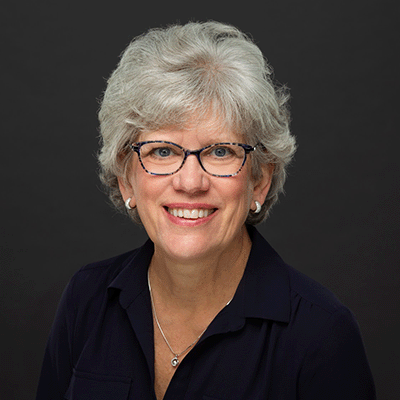
Kris Pladson
kristie.pladson@dakotacollege.edu
701-371-5729
